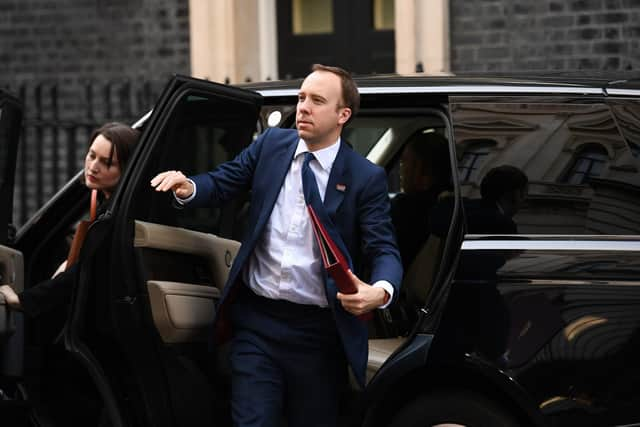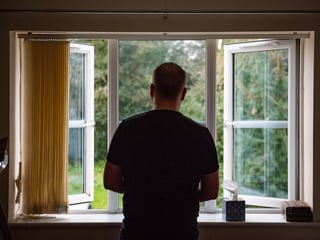Coronavirus: People aged over 70 will be asked to self-isolate for up to four months
and live on Freeview channel 276
Health Secretary Matt Hancock has said coronavirus is ‘a very significant challenge’ that will ‘disrupt the lives of almost everybody’ in the UK.
Speaking on Ridge On Sunday on Sky News, Mr Hancock said: ‘The measures that we're taking, the measures that we're looking at taking are very, very significant and they will disrupt the ordinary lives of almost everybody in the country in order to tackle this virus.'
Advertisement
Hide AdAdvertisement
Hide AdMr Hancock said that people aged over 70 will be asked in the coming weeks to self-isolate for up to four months in order to protect them from the coronavirus.


Asked if that was in the Government's plan, he said: ‘That is in the action plan, yes, and we will be setting it out with more detail when it is the right time to do so because we absolutely appreciate that it is a very big ask of the elderly and the vulnerable, and it's for their own self-protection.’
It comes after Public Health England confirmed there have been 1,140 cases of coronavirus as of 9am on Saturday.
The first confirmed case in Portsmouth was also announced yesterday.
Advertisement
Hide AdAdvertisement
Hide AdPressed on when the measure will be introduced, he said: ‘Certainly in the coming weeks, absolutely.’
Mr Hancock said a Bill setting out emergency powers to deal with the coronavirus outbreak will be published on Thursday.
Asked what the emergency powers will include, Mr Hancock said they would be shared on Tuesday: ‘Yes, we're going to set out the emergency powers on Tuesday and publish the Bill on Thursday.’
Mr Hancock added that he has been talking to Labour's shadow health secretary Jonathan Ashworth about what the emergency powers cover.
Advertisement
Hide AdAdvertisement
Hide AdHe said: ‘This is a cross-party approach. He's made some suggestions of other things that should be in there which we've included. And it includes a broad range of actions, all about preparing Britain, making sure that we're ready, should we need to be.’
When asked by Sophy Ridge about stocks of ventilators, Mr Hancock said: ‘We start with around 5,000 ventilators, we think we need many times more than that and we are saying if you produce a ventilator then we will buy it. No number is too high.
"They are relatively complicated pieces of kit, I couldn't make one, but they're not so complicated that the advanced manufacturing that this country is so good at now can't be able to turn its production lines over to.
‘We've been talking to a whole host of companies about it and the Prime Minister is hosting a conference call today with them to say very clearly to the nation's manufacturers ventilators are the thing that we are going to need and frankly right across the world, the demand for them is incredibly high so it is not possible to produce too many.
Advertisement
Hide AdAdvertisement
Hide Ad‘So anybody who can should turn production and their engineering minds over to the production of ventilators.’
He added: ‘The thing the NHS needs now more than anything else is more ventilators. We've been buying as many as we can but we need to produce more too.’
Mr Hancock said he could not make guarantees that everyone who requires a ventilator will get one, saying: ‘We don't make guarantees in healthcare’.
